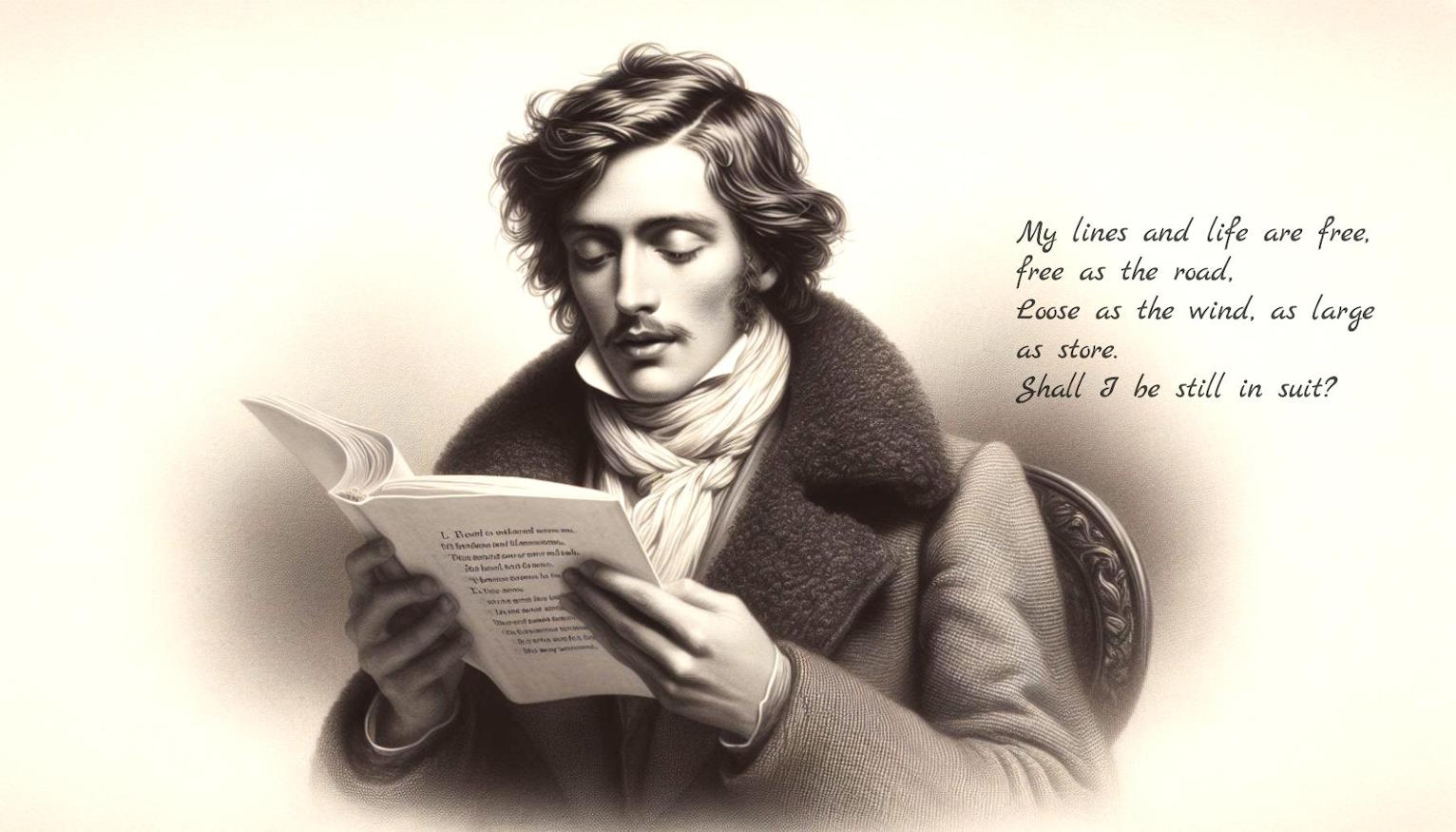The collar is a much typical and well known poem from ‘The Temple’ by George Herbert. Here the poet is doing analysis of the conflict in himself and presenting it in terms of human actions and gestures, of the senses and the body. He clears that all his grief and sorrow take place in his life by his own state of mind. He has the lack of strength against ideal restrictions of the world. He wants to be free but he is captured by the follies of the world. At this moment his heart is so weak and so helpless as that no any action it takes for relief and happiness of the self.
Poet’s Lament

In this poem poet desires to get the freedom and happiness but it does not mean that this poem is an attraction to the relishes of pleasure and lull to the divine sleep of joy; But it is an impotent irritation at not being able to muster up enough response to them. Here is the poet’s lament which shows the will of getting freedom and also the weakness of the heart very closely.
In the first step of the conflict he is crying- “No more, I will abroad’ and now he starts to examine his own condition in this part of life he has many of the questions as “Shall I be still in suit?” Though his lines and life are free – as free as the road, as loose as the wind and as large as the store.
Again “Is the year only lost to me” and “Have I no boys to crown it?” and more and more – “No flower? No garlands gay? All blasted? All wasted?” and he is completely surrounded by universal question to himself ‘Why’?
And then “You are a poor thing”, says Herbert to his heart,
preoccupied as you are with cages and cables and death’s heads: why not resurrect some of that corn and wine that you drowned and dried up with tears and sighs”, Why, O my temperament, are you not more cheerful, more sanguine, more energetic, more fearless? Is the year only lost to me?
Now the conflict of the poet gives the consolation-
“Not so, my heart.” the poet leaves the pessimistic way of his mind and achieves a hope and says to his heart to act to get the real joy. At the end the poet is raved because of useless railings against one’s constitution and nature; and when he “grew more fierce and wild./At every word.”
Famous word of submission ‘My Lord’
For the circle of thought is self closed and does not reach out to dream visions of sensual satisfactions; He hears a calling ‘child’. And then comes a famous word of submission ‘My Lord’ by poet himself. ‘Helen Vendler’ clears the significant use of ‘My Lord’ and gives a way to grant this submission very closely –
If we did not sense that a futile self – destructiveness and an attempt to force a new untimely fruition on nature, were at the root of the intemperate language, we would not be convinced by this submission, ‘My Lord’; we come to that submission with relief, because it means a return to Herbert’s own nature to which he has been so cruel in the course of the poem.
Helen VendlerGeorge Herbert himself described the work as “a picture of the many spiritual conflicts that have passed betwixt God and my soul, before I could subject mine to the will of Jesus my Master; in whose service I have now found perfect freedom.”
Therefore this poem is sensitive to the most delicate changes of feelings, and catches some of the tones of the Elizabethan dramatists in its irregular rhymed verse.
The poem could be very profitably studied as illustrating what Mr. Eliot has called attention to when he says that in much good poetry, especially that of the Elizabethan period and the seventeenth century, “the intellect is immediately at the tips of the senses.”
Text of the poem ‘The Collar’
I struck the board, and cried, "No more;
I will abroad!
What? shall I ever sigh and pine?
My lines and life are free, free as the road,
Loose as the wind, as large as store.
Shall I be still in suit?
Have I no harvest but a thorn
To let me blood, and not restore
What I have lost with cordial fruit?
Sure there was wine
Before my sighs did dry it; there was corn
Before my tears did drown it.
Is the year only lost to me?
Have I no bays to crown it,
No flowers, no garlands gay? All blasted?
All wasted?
Not so, my heart; but there is fruit,
And thou hast hands.
Recover all thy sigh-blown age
On double pleasures: leave thy cold dispute
Of what is fit and not. Forsake thy cage,
Thy rope of sands,
Which petty thoughts have made, and made to thee
Good cable, to enforce and draw,
And be thy law,
While thou didst wink and wouldst not see.
Away! take heed;
I will abroad.
Call in thy death's-head there; tie up thy fears;
He that forbears
To suit and serve his need
Deserves his load."
But as I raved and grew more fierce and wild
At every word,
Methought I heard one calling, Child!
And I replied My Lord.







